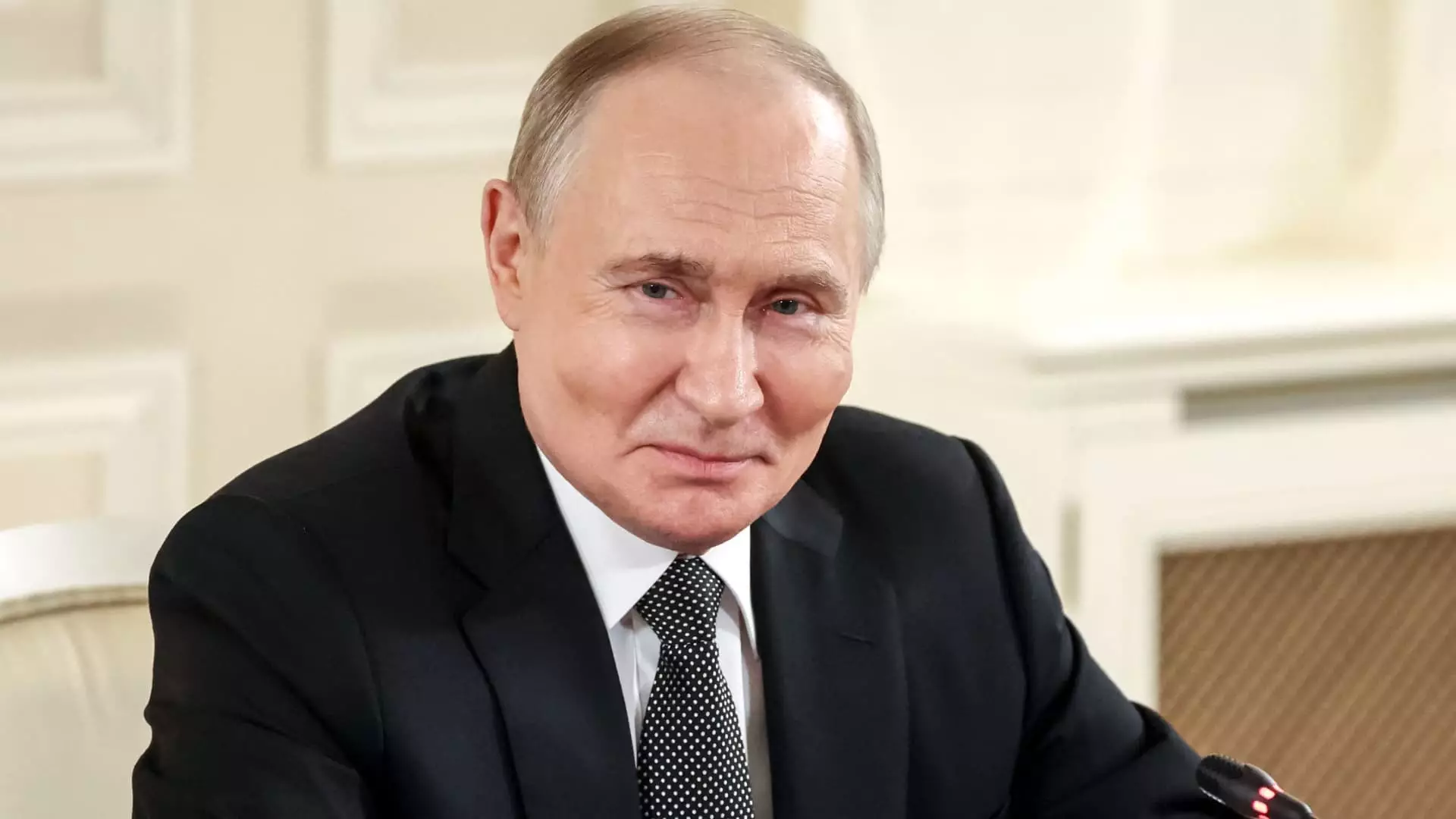In a world riddled with geopolitical chaos, the tendency of influential leaders to cloak their skepticism behind smiles and diplomatic rhetoric is both troubling and dangerous. The recent comments by Trump regarding Vladimir Putin exemplify a superficial confidence that can dangerously lull the public and policymakers into complacency. While Trump criticizes Putin for the ongoing war in Ukraine, his words reveal a troubling disconnect: naively perceiving diplomacy as a tool for genuine change when, in reality, it often masks strategic interests and unfulfilled promises. Trust in power’s soft gestures is an illusion we often cling to, underestimating the brutal calculation behind every handshake and every speech.
The notion that certain leaders can be “nice” or “disappointed” in a veneer of civility is fundamentally flawed. History teaches us that dictators and authoritarians are masters of manipulation, and their verbal diplomacy frequently belies their true intentions. Trump’s dismissive language—describing Putin’s responses as “bulls***”—carries a bitter irony: it assumes that the Kremlin’s actions are fundamentally driven by unpredictable emotional responses, rather than calculated political maneuvers. This superficial analysis dangerously underestimates the resilience and strategic patience of authoritarian states that understand the power of psychological warfare, propaganda, and incremental gains.
Flawed Foundations of American Leadership in a Complex World
Trump’s critique of his predecessors, Biden and Obama, for the conflict’s escalation reflects a simplistic narrative that fails to grasp the complex web of geopolitics. Instead of addressing the systemic issues—security guarantees, diplomatic failures, or economic vulnerabilities—he blames past administrations like a political scapegoat. This perspective neglects the reality that global conflicts are rarely the product of individual decisions but emergent from a tapestry of global interests, alliances, and long-term strategic planning.
Furthermore, Trump’s ignorance about the pause in weapon shipments to Ukraine underscores a dangerous detachment from the realities of leadership. His mockery of the process highlights an often-overlooked truth: that effective foreign policy requires nuanced understanding rather than superficial jabs or attempt to assign blame. Leadership in a crisis demands introspection and a recognition of complex interdependencies—not bluster and platitudes. The idea that this pause was somehow a personal or partisan failure distracts from the larger issue: the United States’ ability to sustain a coherent, resilient strategy in the face of hostile power plays.
The Illusion of Leadership and the Cost of Naivety
The most troubling aspect of Trump’s remarks lies in his recurring tendency to undermine the seriousness of Putin’s strategic design, portraying him as a man easily swayed by words and superficial gestures. His claim that Putin is “very nice all the time” and that the war “should never have happened” is not only naive but potentially dangerous. It underscores a misconception that diplomacy and personal charm can alone influence the brutal realities of modern geopolitics.
The core fallacy here is confidence in the possibility of benign leadership within authoritarian regimes. As history has repeatedly demonstrated, power consolidates not through niceness or polite dialogue but through strength, strategic patience, and often, ruthless calculations. Ignoring these lessons risks fostering false hope and inaction—two things that ultimately empower rogue states and prolong suffering.
In revisiting his own conversations with Putin, Trump’s candid disappointment reveals a superficial grasp of the power dynamics at play. It is a stark reminder that true leadership involves confronting uncomfortable truths, not sugar-coating them with personal judgments or superficial assessments. As the geopolitical landscape becomes more volatile, the danger lies in projecting a false sense of certainty—believing that charm or optimism can substitute for hard-edged strategy and resilience. The real test of leadership is not how convincingly one can spin diplomacy but how effectively one can navigate the perilous waters of global power with clear-eyed realism.


Leave a Reply